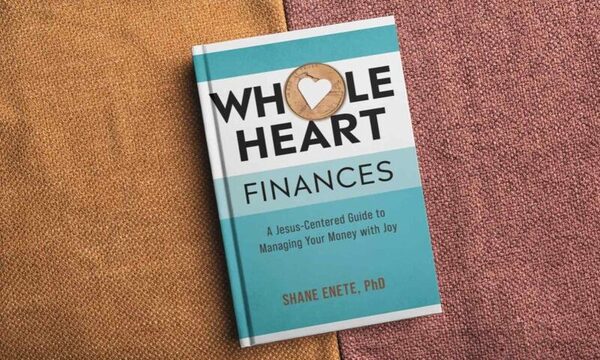âSo whatâs next? What are you going to do after graduation? Do you have a job lined up?â
During college, those questions haunted me. There was an insurmountable pressure to âmake it.â And so I developed an answer for people who asked: âMy dream is to become the youngest chief HR officer at a Fortune 500 company.â And every day I hustled; countless hours studying, all-nighters, building my resume with extracurricular activities, polishing that resume until I could cut diamonds with it.
And it worked! I secured an enviable internship which became a full-time job at the worldâs largest aerospace company. I got to lead transformational company-wide initiatives. I was making $75,000 a year at age 26. But I was still driven to achieve; I devoured management and leadership books, developed strategic plans for my life for five, ten, and 15 years out. I had it all figured out, except I was actually miserable.
The harder I worked, the more I felt disconnected and disenchanted with my work. I felt like a mindless zombie, every day a grind; purposeless, monotonous, thankless. I found myself growing more distant from God. My faith had no bearing on my nine-to-five job and I was impatient and questioning God. Then I found some words from Thomas Merton.
âPeople may spend their whole lives climbing the ladder of success only to find, once they reach the top, that the ladder is leaning against the wrong wall.â
That was me; I was working hard for a life I didnât even want. Wrong wall, indeed. And I knew I wasnât the only one.
That began a life change for me, that included leaving that job and writing a book, Quarter-Life Calling, where we talk about the questions âWho am I in Christ? What am I called to do? What is my purpose in life?â and then learn how to develop specific, concrete strategies for answering those questions. At the invitation of Gary Lindblad, I then came to Crowell, to lead the effort to develop the Career & Calling Roadmap for business students.
What is the goal?
The goal is that each student would develop a plan, not unlike a âdegree audit,â or a degree-requirement sheet, but involving their entire undergrad experience and pointing towards a goal beyond graduation; a map has to have a destination, right? So how do we lead a student to be more than somebody who gets a job, but instead finds a job that's aligned with their sense of calling...work that fits and also allows them to be salt and light and impact the world for Jesus Christ?
There are so many ways that professors and Career Center and so many others play a part, but what we don't have is a persistent and integral emphasis on understanding oneâs sense of calling. For example: Here at Crowell, we have concentrations such as marketing, accounting, management, etc., and each of them has a degree-requirement sheet that tells a student âHere's what you have to do, here's the checklist.â But the question that many of them are asking is âHow do I know if I want to choose marketing? Maybe I should choose management? How do I even know?â
It's a question about direction, and that's what weâre trying to do: Create ways in which students can more clearly see if their direction is headed towards God's will and direction for their life. Our whole idea is to have each student create a roadmap, a strategic, consistent roadmap, so that as the student goes through their years at 51ÂÜŔň, they're going to have this roadmap that helps them to discover and stay true to their calling.
Because calling is like a GPS or a compass: It's going to help guide me to my âtrue north.â It helps me know that âI need to find an internship, I need to hit these seminars on soft skills development, I need to connect with co-curricular activities so that I can grow as a leader.â We have 600 students at Crowell, and in any organization, there's always a bell curve. The top 10%, they're going to excel. We could do barely anything, and they're going to find internships and figure things out. What we need to focus on is the center of that bell curve, the 70-80% or so. But that top 10% need it too. Working hard and achieving much isnât a bad thing, itâs a good thing, but like me, they could be preparing to race up a ladder thatâs leaning against the wrong wall.
How are we progressing?
One of the first things Crowell did was create an all-day faculty gathering, and I designed it so that faculty were actively interacting and really thinking about âWhat could this roadmap look like?â We had small groups and brainstorming sessions, we had Crowell alumni involved; it was a very carefully designed process. And that was a home run; people thought it was very helpful, and to me, that showed that this mattered to faculty. Because faculty are busy, they have their own workloads, theyâre not anxious to take on more unless itâs meaningful, but they saw that we were trying to move the needle.
The second step was analyzing the results of that day and making concrete recommendations that even now we're talking about and working on in our faculty meetings:
- Making internships more prominent, and teaching students how to prepare for them, and how to choose them wisely.
- Creating co-curricular seminars and workshops.
- Using micro-learning, innovative apps, other things to help students with learning.
Our most immediate change starts in fall semester 2020, when weâre offering an elective âcallingâ course that will be available for all students in the business school. In it, we will talk in depth about these issues, about direction and identity and decisions, and also begin pilot-testing the student roadmaps.
Career and calling will be, I believe, what's going to shape the culture and the future of Crowell. After we get it off the ground, it's going to be one of the major things that differentiates Crowell from any other business school. We need to focus on the whole "business as ministry" language. That's not just the slogan, thatâs the ethos, thatâs the mission and vision, and so talk about calling is essential, because it's not just a matter of getting a high paying prestigious job, but a career thatâs a calling, that aligns with who you are and how God designed you. That's going to be critical to Crowellâs success.
Photo by on
 51ÂÜŔň
51ÂÜŔň
.jpg)
.jpg)

